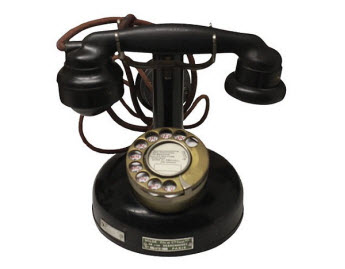Four Ways to Modernize the 1996 Telecom Act

The smarter way to stay on top of the multichannel video marketplace. Sign up below.
You are now subscribed
Your newsletter sign-up was successful
My involvement in formulating the Telecom Act of 1996 began in 1988, when I joined with then-Sen. Al Gore in introducing legislation to allow telephone companies to offer cable TV service (multichannel video distribution services) in their telephone service areas. That measure became the first plank in the ’96 Act, and it was joined by a provision to enable cable companies and other competitors into the local telephone market, a provision to create greater competition in the long-distance market by setting the conditions for the entry of the regional Bell operating companies (RBOCs) into the nationwide long-distance market and a provision enabling the RBOCs to manufacture telecommunications equipment. I was active throughout the committee process in processing the ’96 Act and served as a member of the conference committee.
My “birthday wish” for the act is that Congress adopt much-needed legislation recognizing the digital and mobile era into which telecommunications has emerged. The ’96 Act was about analog services and, to a large extent, “plain old telephone services.” The following provisions will help to modernize the ’96 Act for the digital era:
1. Congress should pass legislation that declares broadband is an information service not subject to common-carrier regulation. The legislation should also give statutory permanence to strong network-neutrality guarantees along the lines of the FCC’s 2010 open Internet order. Such a bill allows both network-neutrality proponents and the proponents of light-touch regulation of broadband to achieve their major legislative objectives, and puts to rest the longest standing and most contentious telecommunications debate of the 21st century. It would also remove the uncertainty about future broadband regulation, which is restraining broadband investment.
2. Congress should recognize in legislation the advanced nature of the Internet- protocol transition and set a date, perhaps 2020, for the sunset of the old legacy copper network. Every dollar that telephone companies are required by law to expend today maintaining the copper network is a dollar not expended on fiber optics and other advanced 21st century telecommunications infrastructures.
3. Another legislative provision should create incentives for government agencies to surrender telecommunications spectrum for auction to commercial wireless carriers. Simply stated, government agencies should be offered a share of the auction proceeds in exchange for a surrender of the spectrum they hold. That approach appears to be working in the case of television broadcasters, and there’s every reason to believe it would work well for government agencies. In my mind, that’s the best approach to getting large allocations of spectrum onto the commercial auction block quickly to meet the growing demand for spectrum for mobile data.
4. Congress should also adopt a Bill of Rights for privacy for Internet users with jurisdiction in the Federal Trade Commission over all telecommunications privacy issues. Giving Internet users greater assurance that their privacy is protected should result in a greater willingness to use the Internet for commercial purposes.
Rick Boucher is honorary co-chairman of the Internet Innovation Alliance and was a U.S. House of Representatives member for Virginia from 1983 to 2011, serving as chairman of the Subcommittee on Communications, Technology and the Internet.
The smarter way to stay on top of the multichannel video marketplace. Sign up below.
